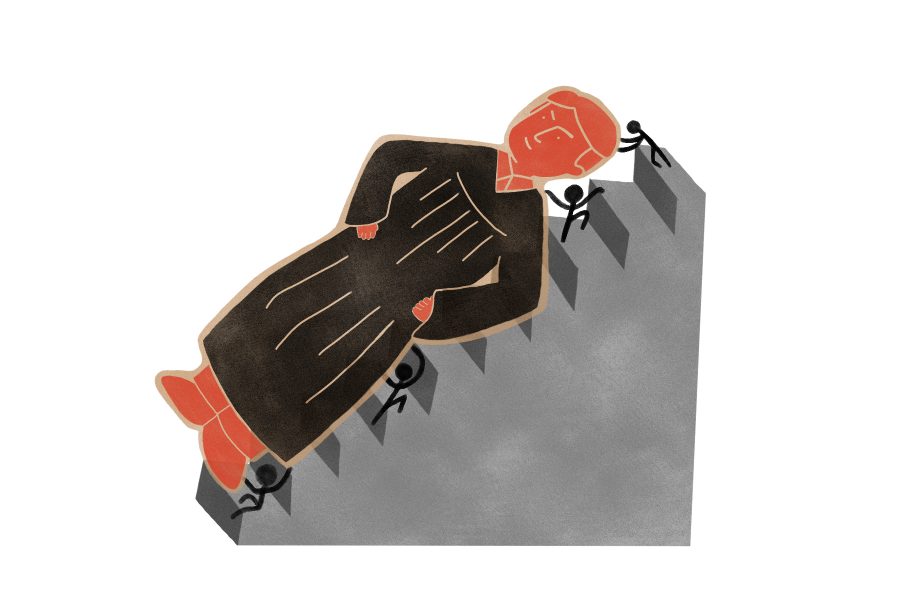My distaste for Justice Brett Kavanaugh was born out of immense gratitude to my dad.
When I think about how I made it into UT, I think about hard work — but not my own. I think about my dad sleeping all day and working all night to ensure finances wouldn’t stop me from attending college. I think about the scholarships I’ve received, the financial aid I was rewarded, and the college degree that was never an option for my father. I do not consider myself a self-made student.
In contrast, during the hearings for Justice Kavanaugh’s confirmation, one significant assumption underpinned Kavanaugh’s defense: He was a self-made man, someone who — without any help — crafted his own career. However, by accepting this narrative, we disregard the sacrifices of those who have helped us succeed in our own lives. As we experience success, we must remember the contributions of those who supported us in our journeys to UT.
Before the nation, Kavanaugh positioned himself in stark opposition to his inherited privilege. When describing his educational background, Kavanaugh claimed he made it to Yale by “busting (his) tail,” because he “had no connections there.”
However, Kavanaugh failed to mention that his grandfather had attended Yale, making Kavanaugh a legacy and dramatically increasing the likelihood of his admission.
At UT, alumni relation is not considered in determining the admissions status of incoming freshmen. Students actually have to bust their tails to get in.
“It really just (felt like) a performance,” said Alejandra Morales, a history and government junior and first-generation student. “I feel like (Kavanaugh) doesn’t realize how privileged he is, that he has many things that allowed him to (become) a self-made man.”
As a large state-funded school, UT serves thousands of students with varying degrees of socioeconomic privilege. Since the Kavanaugh confirmation, the rhetoric of being “self-made” has crossed the minds of some students coming from less economically privileged backgrounds, as well as some first-generation UT students.
“As a first-generation student, without my parents, I know I would not be where I am right now,” marketing junior Cheyenne Valdez said. “I know I cannot claim the self-made title … coming from less privileged places, you don’t get to glorify (your struggle).”
These perspectives are dissonant when compared to Kavanaugh’s comments during the confirmation hearings. A man who, after attending a prestigious private high school, and matriculating to Yale with the help of his pedigree, should not take ownership of the self-made title.
Kavanaugh’s lack of acknowledgment and gratitude for those who helped him succeed brings into question his claim to self-made status. “That’s another sign that he doesn’t know what struggling is,” said Brooke Quach, a first-generation English junior. “You learn a lot from others around you, who lift you up.”
As students, we have the unique opportunity to change the way we craft our own narratives of success. In spite of the rhetoric surrounding Kavanaugh’s confirmation, we must reject the corrupted notion of the self-made man.
López is a rhetoric and writing junior from McAllen.


















